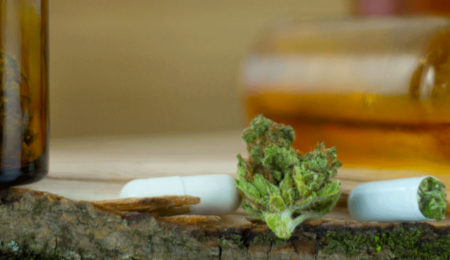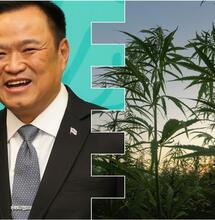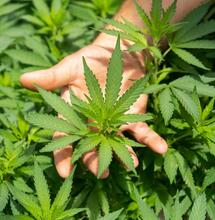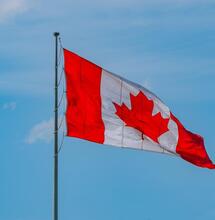Top 10 Marijuana Highlights From 2011

2011's 10 most significant, positive developments in marijuana policy reform in the US
2011's 10 most significant, positive developments in marijuana policy reform in the US
SOURCE: www.huffingtonpost.com AUTHOR: Rob Kampia So now that other organizations' and TV networks' various top-10 lists are out of the way, the Marijuana Policy Project can safely release its annual top-10 list without getting caught in the clutter and the bluster.1. Congress defunds drug czar's ad campaign:
In 1998, Congress and President Clinton enacted a law creating the "National Youth Anti-Drug Media Campaign," which received an average of $186 million of taxpayer money annually over its first five years. MPP lobbied Congress for the last decade to eliminate this program, which was eventually funded with "only" $35 million in 2011. Finally, on December 23, Congress and President Obama entirely eliminated funding for the ads for 2012!2. Our ideal bill is finally introduced in Congress:
On June 23, Congressmen Barney Frank (D-MA) and Ron Paul (R-TX) introduced a bill that would let states determine their own marijuana policies -- not just medical-marijuana policies -- without federal interference. MPP had lobbied Congress for five years to initiate this legislation, which MPP helped draft. As of today, 21 House members are sponsoring this legislation.
3. Public support for legalization reaches all-time high:
On October 17, the Gallup organization announced that public support for "making marijuana legal" rose to 50% for the first time ever. This means that support has been rising by 1.5% annually since 1995.4. Delaware legalizes medical marijuana:
On May 13, Gov. Jack Markell (D) signed legislation making Delaware the 16th state to legalize medical marijuana. Of all the state laws that MPP has helped pass, the Delaware law was the cheapest, costing us less than $100,000 over the course of 2010 and 2011.5. Maryland and Vermont improve their medical marijuana laws:
On May 10, Gov. Martin O'Malley (D) signed a bill that improved Maryland's law, allowing people who are arrested for marijuana possession to escape conviction if they demonstrate in court that their marijuana use was medical in nature. And on June 2, Gov. Pete Shumlin (D) signed a bill that improved Vermont's existing medical-marijuana law by legalizing four dispensaries to sell marijuana to patients.6. Maine, New Jersey, New Mexico, and D.C. implement/expand their medical marijuana laws:
Abiding by a ballot initiative that 59% of Maine voters approved in November 2009, Maine's health department issued eight dispensary licenses in 2010; all but one of the dispensaries have now opened their doors. In New Jersey, Gov. Chris Christie (R) famously held a news conference on July 19, saying he didn't believe New Jersey dispensaries would be targeted under federal law; as a result, six dispensaries will open up in his state this year. In New Mexico, the number of dispensaries was increased from 17 to 25. And the D.C. government launched an application process that will result in 10 growers and five dispensaries being licensed in our nation's capital by April!7. Arkansas and Connecticut lower penalties for marijuana possession:
On June 30, Gov. Dan Malloy (D) signed legislation decriminalizing marijuana in Connecticut, making the possession of under a half-ounce punishable by a fine of $150. And in Arkansas, Gov. Mike Beebe (D) signed legislation relaxing the penalty for possessing up to four ounces of marijuana -- previously punishable by up to a year in jail and a $1,000 fine -- judges may now punish first-time offenders with a year's probation.
8. World leaders speak out:
On June 2, the "Global Commission on Drug Policy" announced its support for rolling back the drug war, as a way of rejecting President Nixon's launch of the modern drug war precisely 40 years earlier. Specifically, luminaries like Kofi Annan, George Shultz, and Richard Branson endorsed the decriminalization of marijuana. Shortly afterwards, President Carter followed suit. All of this generated huge waves of positive media coverage in the U.S. and worldwide.9. Ron Paul shakes up the political debate:
Congressman Ron Paul (R-TX), running for the Republican presidential nomination, continued to be fearless while attacking the U.S. drug war. As public support for his campaign continued to rise over the course of 2011, his words became more and more amplified, making "Ron Paul" a household name and opposition to the drug war respectable in Republican circles. And now he's the number-two candidate on the Republican side -- and certainly better than President Obama!10. Governors ask the feds to reschedule marijuana:
On November 30, Governors Christine Gregoire (D-WA) and Lincoln Chafee (I-RI) formally petitioned the DEA to move marijuana from Schedule I to Schedule II, thereby declaring that marijuana has medical value. While both governors did this for political reasons -- Gregoire to posture that she's better on medical marijuana than she really is, and Chafee to avoid a legal conflict with the feds -- the fact remains that this is the most significant challenge to the federal government's classification of marijuana since Congress and President Nixon declared marijuana to have no medical value in 1970. Did I miss anything? If so, please let me know. Onward into 2012 ...
S
Soft Secrets



